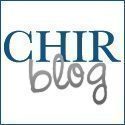Federal Committee Recommends Airline Deregulation Act Changes to Avoid Conflicts with No Surprises Act

Air ambulances are one of the largest sources of surprise medical bills. While the No Surprises Act would protect patients from balance bills from out-of-network air ambulance providers, another federal law – the Airline Deregulation Act – could raise questions about states’ authority to enforce these consumer protections. CHIR’s Madeline O’Brien and Jack Hoadley describe a federal advisory committee’s recommendations to resolve potential conflicts.




